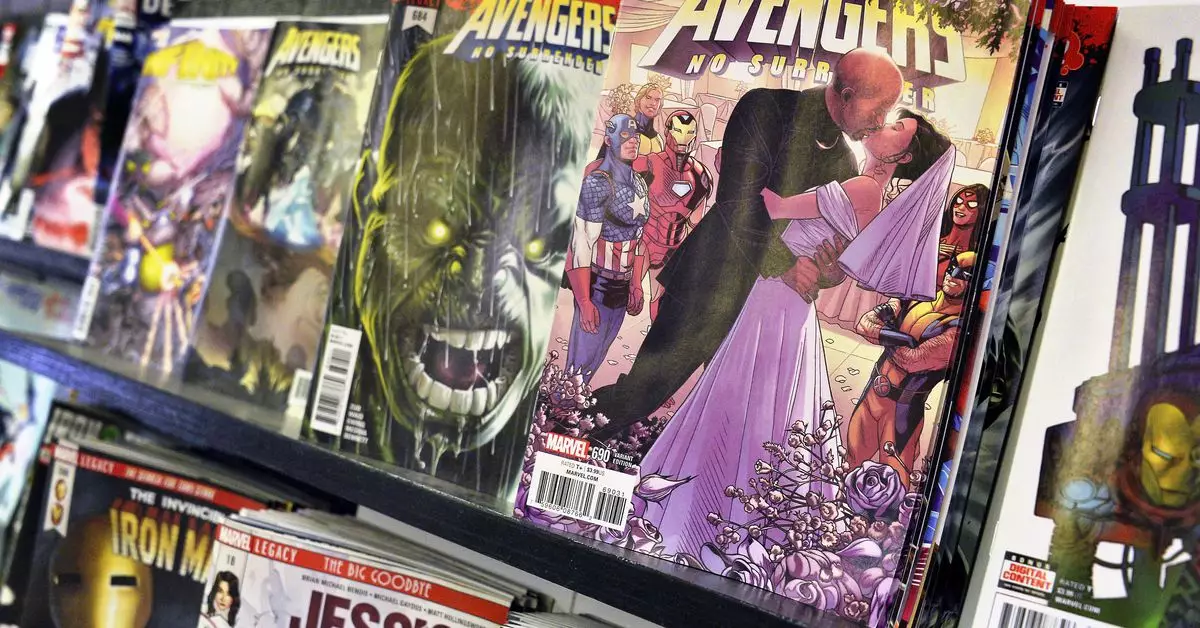For decades, Marvel and DC have dominated the comic book ecosystem, not just in storytelling and character development but also in the legal realm of intellectual property. The term “Super Hero” has been synonymous with their brands, serving as a cornerstone of their identities. However, recent developments have shaken this longstanding status quo, with the United States Patent and Trademark Office (USPTO) invalidating key trademark claims that have placed these two giants in a privileged yet monopolistic position. The implications for the creative industry could be significant, heralding a new era for aspiring creators.
The pivotal moment in this saga emerged when a lesser-known entity, Superbabies Limited, contested the trademark holdings of Marvel and DC. The company, founded by S.J. Richold, produces a unique line of comic books featuring superhero babies, making a bold play for a space typically dominated by more well-known characters. The lawsuit was initiated after DC intervened in Richold’s marketing efforts, signaling that the Titans of the comic world were eager to quash competition—however minuscule—before it could gain any traction.
Richold’s audacity in taking on these behemoths reveals much about the current climate for small creators. The character of David versus Goliath plays out prominently here, offering an intriguing narrative for both legal experts and comic enthusiasts. The USPTO’s subsequent cancellation of trademarks that had been in place since 1967 marks a trend of re-evaluating ownership in a rapidly evolving landscape.
The annulment of these trademarks offers a critical lens through which we can view the evolution of intellectual property rights, especially in creative industries. What does it mean for the essence of creativity when the monopoly held by two major players is weakened? At its core, trademark law was designed to foster creativity and protect inventors. However, the stringent control over terminology like “Super Hero” stifles not only the input of competing narratives but also the voices of diverse creators, who may wish to explore unique storytelling avenues without fear of legal repercussions.
In addition to the canceled trademarks, the two companies still maintain some level of control over terms like “SUPER HEROES” and “SUPER-VILLAIN”, but the careful balance of power has shifted. This legal precedent opens doors for emerging writers and artists, potentially allowing new and innovative works to flourish unencumbered by legacy claims.
Looking ahead, the implications of this case present exciting prospects for both superhero aficionados and the wider creative community. With traditional power structures weakening, a wave of indie creators may rise, harnessing the newfound freedom to explore fresh and inventive narratives. The collaborative nature of storytelling may evolve, allowing a broader range of voices and ideas to surface, which is essential for the growth of an industry that thrives on innovation.
This case serves as a pivotal reminder that the evolution of content censorship and ownership is ongoing, encouraging stakeholders in the creative landscape to remain vigilant and proactive. The power dynamics in the comic book industry are in flux, and as barriers dissolve, the champions of creativity, like Richold and his Superbabies, represent the changing tides and the possibility of a more inclusive narrative universe.
The invalidation of Marvel and DC’s trademarks offers a crucial turning point that could inspire a renaissance of creativity, inviting both new and established creators to explore storytelling without the heavy burden of legislative constraints. As the industry navigates through this transformation, we should remain attentive and supportive of the emerging voices that will shape the future of superhero narratives.


Leave a Reply